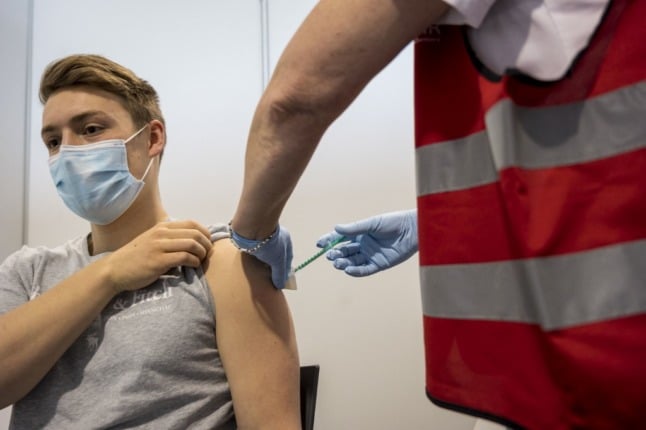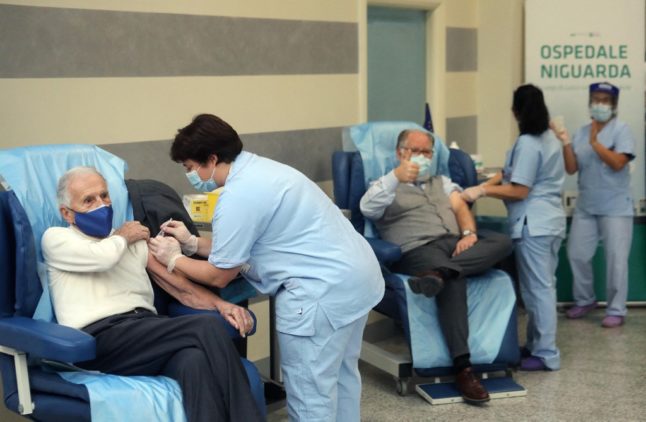Italy has got the green light to immunise younger adolescents against Covid, following a decision by the Technical and Scientific Committee (CTS) at a meeting on Monday, stated AIFA.
The move came after the European Medicines Agency (EMA) gave the go-ahead on Friday, which stated that the Comirnaty (Pfizer-BioNtech) vaccine is safe for use on younger people: “The available data demonstrate the efficacy and safety of the vaccine in this age group”, added AIFA.
READ ALSO: Which regions of Italy have opened vaccinations to all over-18s?
The news came shortly after the announcement that Italy’s regional health services could open up vaccination appointments to everyone aged over 16 from June 3rd.
Italy’s Covid-19 emergency commissioner Francesco Figliuolo stated on Friday during a visit to a vaccination centre in Umbria that this would be bolstered by a further 20 million doses being made available in June.
La Commissione Tecnico Scientifica di #AIFA ha approvato l'utilizzo del #vaccino Comirnaty (BioNTech/Pfizer) per la fascia di età 12-15 anni, accogliendo il parere espresso dall'EMA.
👉https://t.co/TygcccXesP#COVID19 @EMA_News— AIFA (@Aifa_ufficiale) May 31, 2021
So far, Italy has prioritised vaccinations based on age and vulnerability, giving the jabs first to older age groups and those considered at high risk because of medical conditions.
The country’s health campaign differs from area to area as the local health authority manages the vaccination campaign. This means that while everyone over 16 can book their jab from Thursday, some parts of the country simply aren’t ready for this age bracket yet.
READ ALSO: How do you get an Italian Covid vaccination certificate?
Most regions of Italy currently still have older adults and others most at risk in their sights. Meanwhile, some regional health authorities have already opened reservations to over-30s, high schoolers about to graduate, or even everyone over 18.

People over 40 are the group mostly being vaccinated at the moment, but many have reported waiting times of several weeks or a month for an appointment.
The national vaccination campaign is now accelerating with a total of just under 35 million shots administered and over a fifth of the population – 12 million people – now fully vaccinated, latest figures show.
While welcoming the news, Figliuolo warned that each region needs to keep focussing on those who need the shots the most: “We mustn’t ease off vulnerable categories and the elderly, who we will finish [vaccinating] at the end of June,” he said.
READ ALSO: Can I use a foreign vaccination certificate to access Italy’s health passport?
There are still bureaucratic obstacles stopping some people in Italy being able to access their vaccination, such as eligible foreign residents struggling to book an appointment.
Many of The Local’s readers who do not have an Italian national health card (tessera sanitaria) have been unable to register for a slot using online booking systems.
Anyone facing this problem is advised to contact their local health authority (ASL) or call their regional vaccination hotline, rather than trying to register online. Here’s how to enrol in Italy’s public health system.



 Please whitelist us to continue reading.
Please whitelist us to continue reading.
Member comments